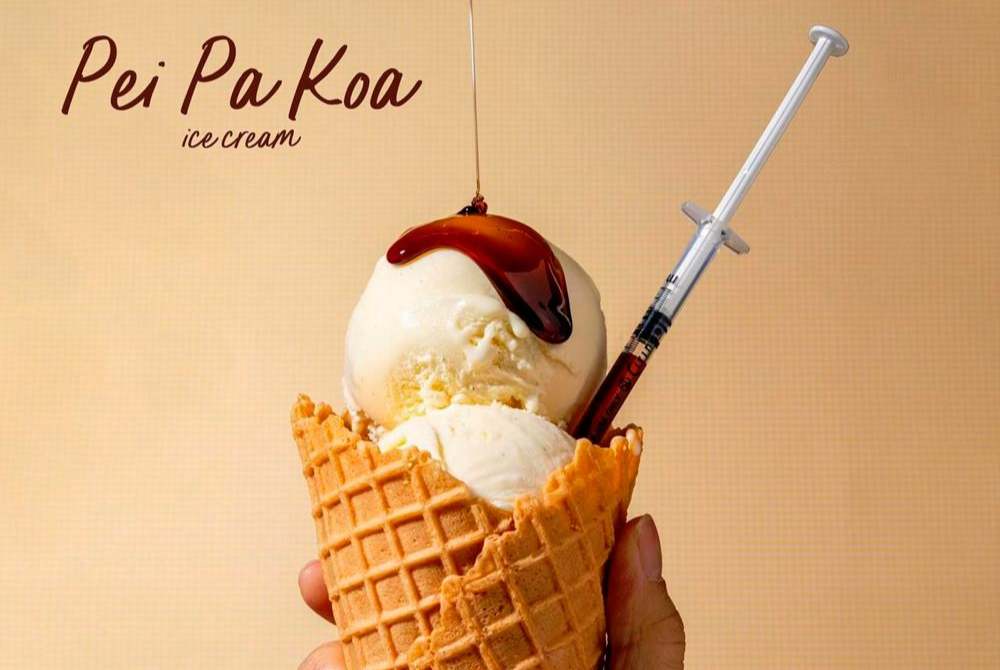Promoting cough syrup ice cream misleading, illegal - Experts
"When it comes to medicine, we have our laws, and we have to follow the law."

SHAH ALAM - While creative at-home remedies may seem harmless, promoting cough syrup ice cream is both misleading and illegal, potentially endangering public health, say experts.
Such practices not only misrepresent the intended use of medicinal products but also posed significant health risks to the public.
Malaysian Pharmacists Society President Professor Amrahi Buang said that medicine was a separate entity from food, governed by stringent laws and it should not be misinterpreted and misused.
"Medicine is a separate entity from food and is governed by existing laws. This means not everything is allowed. It is a misrepresentation and misuse (to use medicine in food promotion).
"For example, if anyone wants to do this at home on their own, it's okay, but when you advertise or promote it like that, then it's really wrong," he told Sinar Daily.
This came after the Health Ministry (MOH) issued an order to all shops selling ice cream with the flavour of a traditional cough syrup ‘Pei Pa Koa’ (Cap Ibu dan Anak) to immediately stop selling the prohibited concoction, to protect consumers and public health.
The MOH said that the directive was issued following a review by the MOH, through the Food Safety and Quality Programme (PKKM), after social media had gone viral yesterday with an ice cream product that was infused with the traditional cough syrup
It said that Section 13B (2), Food Act 1983 (which prohibits adulteration of edible items with medicine) does not allow the preparation or sale of any food which has been adulterated, and if convicted can be subject to a fine not exceeding RM20,000 or imprisonment not exceeding five years, or both.
Amrahi expressed his concern about the influence of social media on such practices.
"Basically, it's just about the effect on social media, where people do all these creative or crazy things.
"To promote it and influence other people, is really not the right thing. That is not the right way to do medicine," he said.
Highlighting the role of pharmacists in ensuring safe medication practices, Amrahi urged the public to seek professional advice when it comes to medications.
He also urged everyone to not normalise something which was not the right practice, noting that medications were merely to address the symptoms.
"When you go to a pharmacy, get advice from the pharmacist on how to take the medicine because not many people have the literacy to understand how to take it themselves.
"If something is not right, don't normalise it; it's not the right practice. I don't know how the younger generation accepts this. When you talk about medicine, it's really something that needs to address the symptoms.
"Just because you want something new and creative, at the same time you open a channel where people do crazy things. When it comes to medicine, we have our laws, and we have to follow the law," he said.
Echoing Amrahi's sentiments, Malaysian Pharmaceutical Society (MPS) former president Datuk Nancy Ho supported MOH's stance on this issue noting that medicinal products should not be adulterated.
"The advice by MOH is a sensible one. No medicinal products should be adulterated because they were registered in a certain dosage form and should not be presented to consumers in any other dosage form to protect the health of consumers," she said.
Nancy pointed out the risks of altering the form of medicinal products to make them more appealing.
"They may think that it's easier to give cough syrup to an unwilling child by making it attractive and palatable to young children, but it is against the laws. Cough syrups are regulated by law and should not be concocted in any other way," she added.










